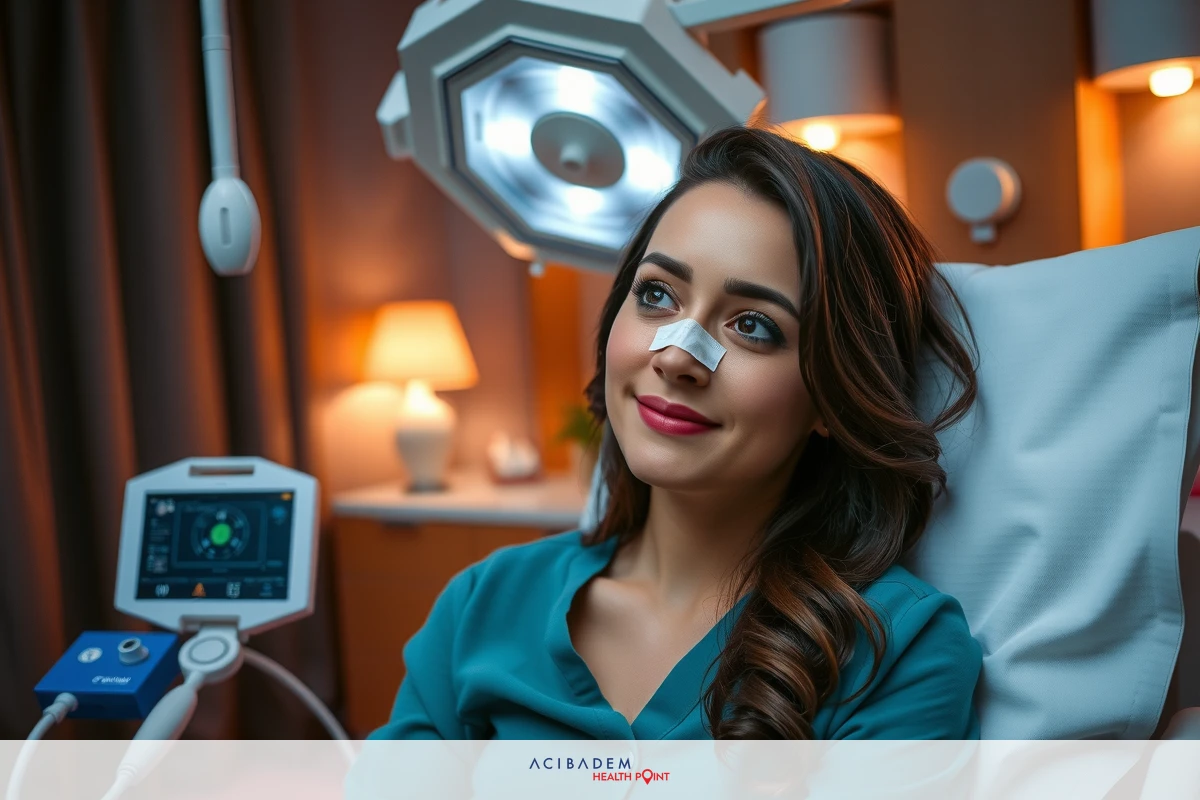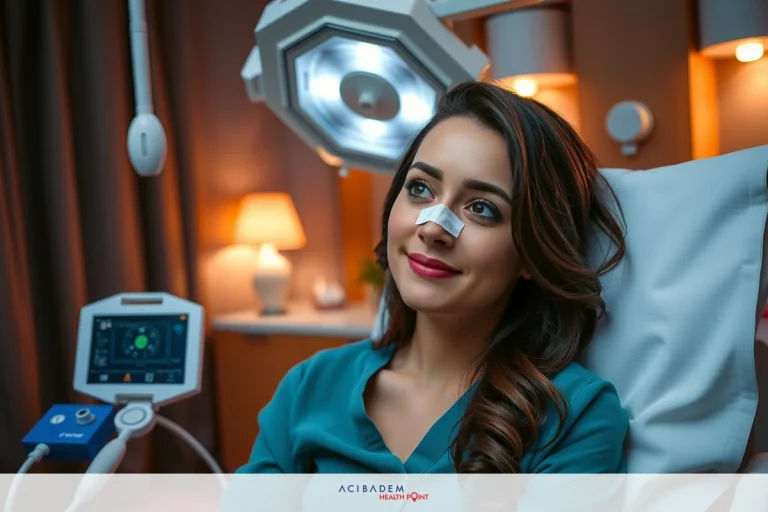What Happens During a Rhinoplasty Procedure
What Happens During a Rhinoplasty Procedure Rhinoplasty, popularly referred to as nose surgery or nasal reshaping, is an intricate process with several procedural steps. The journey from preparation through the surgical process and post-operative recovery involves numerous intricacies that patients need to grasp fully. These procedures can alleviate possible anxieties surrounding the operation while providing a solid foundation for informed decision making.
In preparing for rhinoplasty, one must consider various factors, the consultation stage, physical health assessment, and mental preparedness all play vital roles in the outcome of this cosmetic procedure. Following preparations comes the actual surgical process, a sequence that demands precision from medical professionals and compliance on part of the patient. Postoperative care and recovery are equally paramount; managing expectations during this period can influence overall satisfaction with results achieved.
The discourse around rhinoplasty extends beyond just its technical aspects. It also includes potential benefits and risks involved. While it’s essential not to overlook these considerations when contemplating such a procedure, having comprehensive knowledge about what happens during a rhinoplasty procedure remains fundamental.
Preparing for the Procedure
Preparing for a rhinoplasty procedure involves more than just marking the date on your calendar. It is a holistic process that requires mental, physical, and logistical readiness. The first step in preparing for nose surgery is consultation with an experienced surgeon. During this initial meeting, your surgeon will explain what the procedure entails and discuss your expectations and desired outcomes from this cosmetic surgery.
Your medical history is examined during this phase to ensure you are fit for nasal reshaping. Certain health conditions or lifestyle habits such as smoking could potentially complicate both the operation and recovery period. Honesty about these matters can significantly contribute to achieving successful results from rhinoplasty.
Health considerations, financial preparation should also be taken into account when planning for a nose surgery procedure. Rhinoplasty can be quite costly depending on various factors including surgical fees, anesthesia costs and aftercare expenses among
others. Henceforth it’s crucial to understand fully all potential costs involved before proceeding.
Pre-operative instructions provided by your doctor play an integral role in ensuring smooth sailing during the actual nose surgery process so adherence to them cannot be overstated enough – neglecting even one instruction might lead complications which we strive avoid at all cost!
Lastly but no less important comes emotional preparation – undergoing any form of cosmetic alteration often brings along mixed feelings anxiety anticipation excitement fear relief name few having strong support system place goes long way helping cope these emotions while also maintaining positive outlook throughout journey towards new improved self-image via rhinoplasty!
The Surgical Process
The surgical process of a rhinoplasty procedure, often known as nose surgery or nasal reshaping, is an intricate journey involving several critical steps. A comprehensive understanding of these steps provides insights into the specifics of this cosmetic surgery and prepares you for what to expect.
- Anesthesia Application: Anesthesiologists administer anesthesia at the outset to ensure patients experience

In the image, a young woman is seated in an examination chair with her head resting comfortably on its back. She appears to be receiving medical attention or treatment that could involve the use of surgical instruments nearby. The environment suggests a clinical or hospital setting. no pain during the operation. This could be general anesthesia or intravenous sedation, depending on your surgeon’s recommendation and personal health factors.
- Incision Making: Surgeons carefully make incisions inside your nostrils where they are hidden from view in most cases; however, sometimes an open rhinoplasty requires a small external incision at the base of the nose between nostrils.
- Nasal Structure Adjustment: Depending on patient-specific needs such as removing a hump, narrowing nasal bone width or changing tip shape – surgeons modify the underlying structure accordingly.
- Reshaping Steps: If necessary, cartilage may need to be grafted in certain areas if significant modification is required – typically harvested either from deep within one’s ear or possibly their rib section when larger amounts are needed.
5. Repositioning Skin & Tissue: After structural changes have been made appropriately according to desired results discussed pre-operatively between patient and surgeon alike – remaining skin tissue is re-draped over newly formed framework giving birth whole new look!
What Happens During a Rhinoplasty Procedure: Recovery and Aftercare
The recovery process following a rhinoplasty procedure, commonly referred to as nose surgery or nasal reshaping, can be just as important than the surgical process itself. It’s during this period that your body begins to heal and adjust to the new changes made to your nose. This phase demands patience, care, and adherence to aftercare instructions provided by your surgeon.
In the initial days post-surgery, it is common for patients to experience some degree of swelling and bruising around their eyes and nose. Resting in an elevated position can help alleviate these symptoms as well as using cold compresses intermittently throughout the day. While discomfort may accompany you in this stage of recovery from rhinoplasty, prescribed analgesics often prove effective in managing such sensations.
One crucial aspect of aftercare involves understanding that healing times vary between individuals—what might take one person a few weeks could potentially take another several months. Therefore maintaining open communication with your cosmetic surgeon regarding any concerns or abnormalities encountered while recovering will facilitate both physical healing progress emotional wellbeing alike.
Strenuous activities are generally discouraged during early stages because they could lead increased swelling prolonged recovery time overall; however light walking can aid circulation promote faster healing instead! Likewise keeping head elevated even when sleeping helps reduce inflammation too so incorporate extra pillows into bedtime routine if necessary!
As weeks pass by post-operation noticeable decreases swelling together gradual unveiling final results should become apparent – truly rewarding part journey having endured through initial hardships associated with any major surgical procedure like rhinoplasty indeed! However remember refrain from judging outcome prematurely since complete settling down tissues takes upwards year achieve full effect desired alterations hence patience key here again!
Frequently Asked Questions
What is the typical recovery period after a rhinoplasty procedure?
The initial healing phase typically takes around two weeks, during which most of the visible swelling and bruising will subside. Complete healing can take up to a year or even longer in some cases.
How long does the actual nose surgery procedure last?
Typically, a rhinoplasty operation lasts between one to three hours. This duration depends on the complexity of your specific case and whether any additional procedures are being performed simultaneously.
Can I resume normal activities immediately following my nasal reshaping surgery?
No. It's advisable that patients rest and avoid strenuous activities for at least a few weeks post-surgery. Your surgeon will provide more precise instructions based on your individual circumstances.
Are there risks associated with undergoing rhinoplasty?
Like all surgical procedures, yes, there are potential risks involved in undergoing a rhinoplasty procedure such as bleeding, infection or adverse reaction to anesthesia among others; however these are generally rare occurrences when operation is carried out by certified experienced professionals like our team members here!











